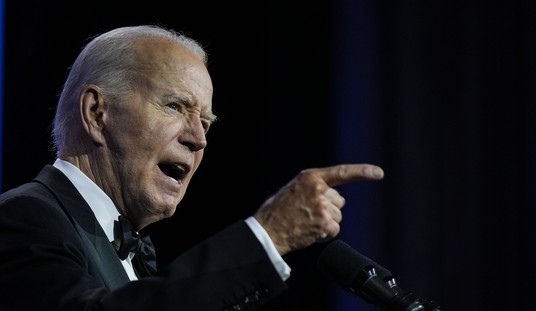Former FBI director Louis Freeh’s report on the horrors that occurred at Penn State are the subject of an article on the PJM homepage by attorney Nina Yablok, or as I like to call her, my wife:
The report further states that in addition to Curley and Shultz who were charged, University President Graham Spanier and the legendary Coach Joe Paterno also failed to protect children from a sexual predator for over a decade:
They exhibited a striking lack of empathy for Sandusky’s victims by failing to inquire of the child who Sandusky assaulted in the Lasche Building in 2001. Further, they exposed this child to additional harm by alerting Sandusky who was the only one who knew the child’s identity, of what McQueary saw in the shower on the night of February 9, 2001 [emphasis added].
Michael McQueary was a graduate assistant who in 2001 reported to Paterno that he saw Sandusky engaging in sexual activity with a boy in the coach’s shower room. Sandusky was involved in a youth program that put him in contact with boys, and it was one of these boys whom McQueary saw. Paterno told McQueary that McQueary had done what he had to do by reporting it, and to leave the handling of the incident to him.
Paterno did report to his superiors, but from then on Penn State’s reaction was a casebook example of cover-up. Curley told Sandusky not to clean up his act, not to get psychiatric help, not to turn himself in to authorities, but merely to “never bring youth into the showers.”
Why not just tell him: “We’ll rent you a motel room, but just keep your sexual assault of kids off university property?” In fact, Sandusky was taking boys to his home basement, so losing “shower room” privileges didn’t slow him down.
Why should we care about this incident? Tragically, children are sexually abused every day, and heaven knows it’s not news for college sports to be a breeding ground for illegal activity. But it is rare to see the institutional decay so clearly and at such high levels as we do in this report.
Do we believe Penn State is the only school where a university president would allow heinous crimes to continue in order to avoid bad press? Is Penn State the aberration, or the school that got caught?
This morning, before news of Freeh’s findings broke, I started to write a post quoting Allan Bloom’s appearance on a 1987 edition of William F. Buckley’s Firing Line to discuss The Closing of the American Mind. Bloom’s appearance was one of the programs included in the cache of Firing Line episodes the Hoover Institute recently made available for anyone with an Amazon Prime membership to stream for free. Near the end of the episode, Bloom and Buckley were joined by Midge Decter, the wife of Norman Podhoretz, who made a couple of observations that dovetail remarkably well with today’s news:
MIDGE DECTER: Well, I found the discussion between the two of you had one very serious omission. One of the most fascinating things in your book, Allan, is your discussion of the students and the students being a critical issue in universities. And you described students in a condition of being uprooted, cut off, or as you said, Bill, disinherited from their patrimony. And I think that both this discussion and perhaps your book, too, slightly scanted the degree to which we know that the students of the 1960s were not in fact being rebellious but were being obedient, and they were being obedient to a tradition–
WILLIAM F. BUCKLEY: To the tradition that they inherited.
MS. DECTER: And it was to a tradition that they inherited. In fact, they were submitting to a mandate being imposed upon them, and the degree to which that tradition itself, the anti-bourgeois tradition, if you will, itself was a central tradition in the universities. At Columbia University when there was a great faculty senate deciding, as yo~ describe, about Cornell on some critical issue, perhaps the most distinguished professor of literature in that university stood up and said, “We must remember that these students are our product.” Now, perhaps it was cowardice on his part, perhaps it was —
MR. BUCKLEY: This was Lionel Trilling?
MS. DECTER: Yes. –lack of commitment. partly it was a recognition that he himself and his colleagues had very great responsibility for the ideas and the beliefs of these students. To take their so-called rebellion at face value seems to me a mistake. They were in fact being very submissive to the intellectual mandate that was being offered them. And the students in the ’80s whom you describe, who are a different kettle of fish, very different, are in some ways a much sadder phenomenon, because they are the ones who say, “It’s no big deal.” The most potent sentence quoted about the students in that book is the girl who, when you said, “What do you suppose the mother of someone who–of a young girl who had a lover would have said? How do you feel about it?” and she said, “It’s no big deal.” And the idea that it’s no big deal is also a form of obedience, is it not?
It’s certainly a form of obedience to a philosophical mindset that’s been taught in colleges for decades. As a century’s worth of moral relativism rolls on and the higher education bubble continues to burst, is the Penn State nightmare the terminal destination of “it’s no big deal,” or will there be worse horrors for academia waiting to emerge in the future?










Join the conversation as a VIP Member